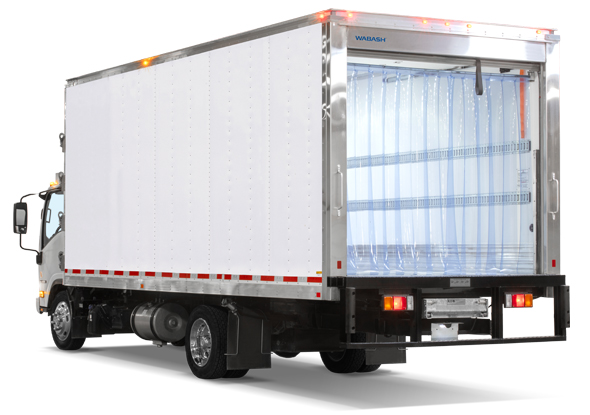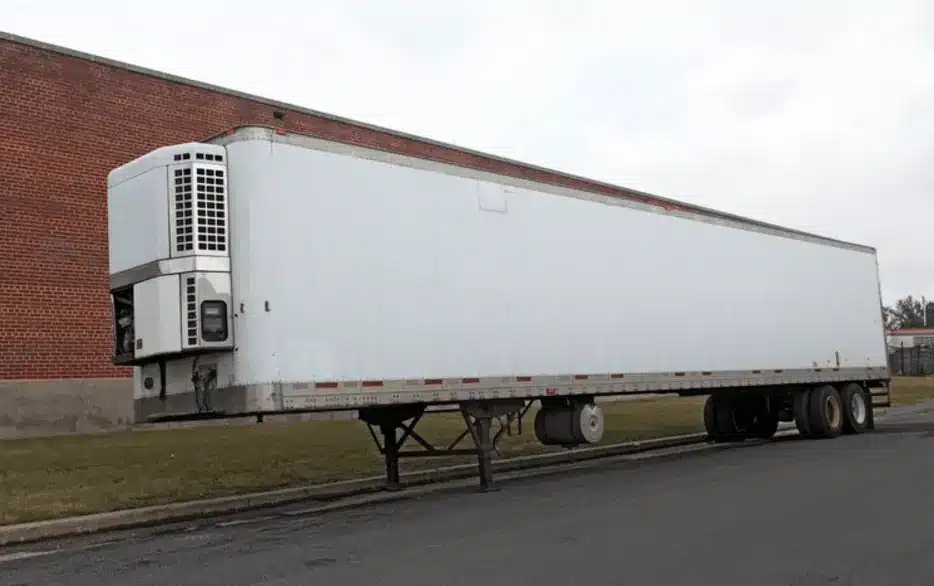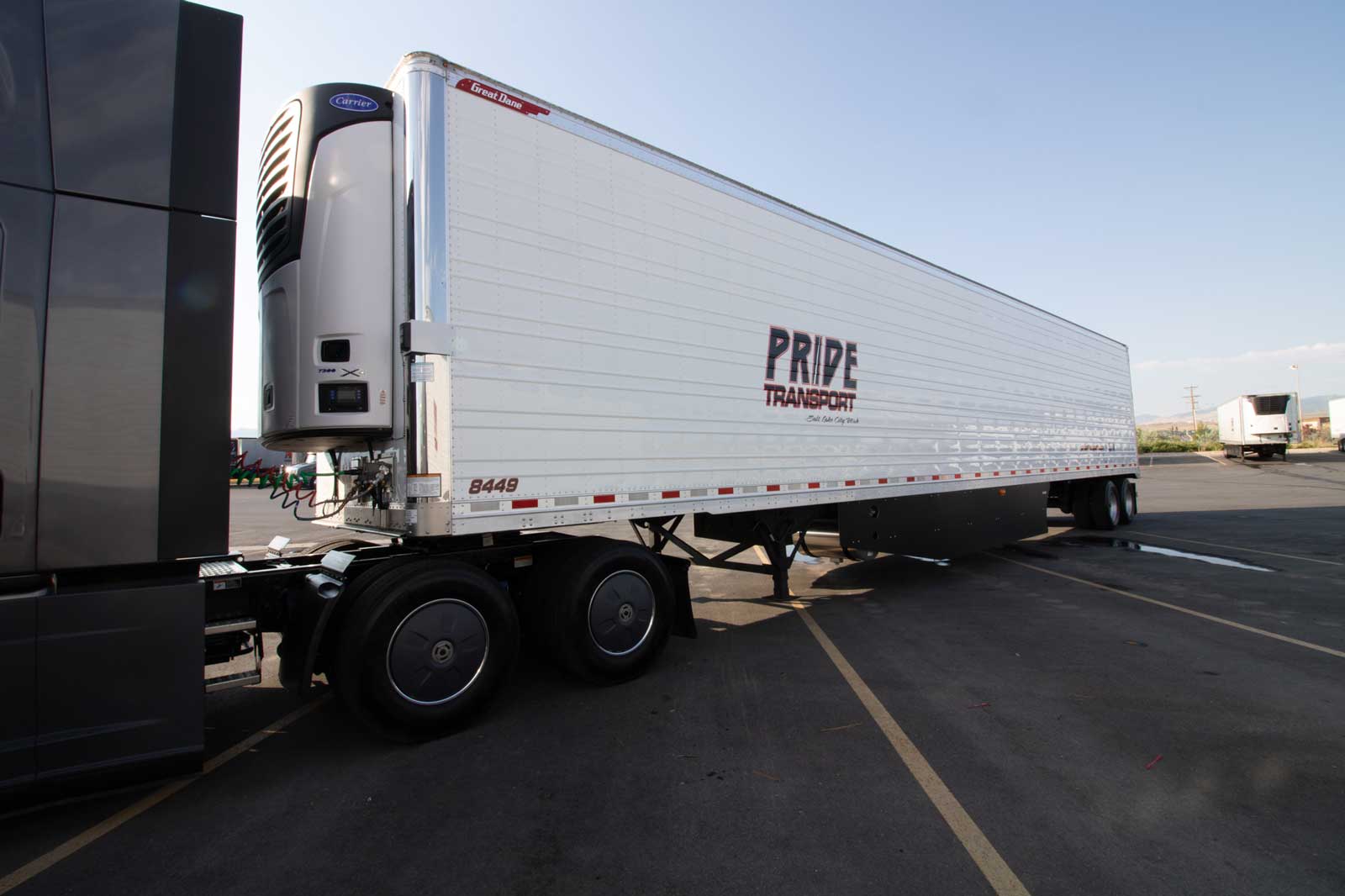Reefer Trucks Thermo King: Blazing A Trail in Cold Chain Innovation
Reefer Trucks Thermo King: Blazing A Trail in Cold Chain Innovation
Blog Article
Top Innovations in Transportation Refrigeration: Enhancing Performance and Security
The landscape of transportation refrigeration is undertaking substantial improvement, driven by technologies aimed at enhancing both efficiency and safety and security. As these innovations proceed to develop, it is vital to discover their ramifications on operational practices and regulative compliance, triggering a more detailed evaluation of how they reshape the future of transportation refrigeration.
Smart Temperature Level Keeping An Eye On Equipments
In the world of transport refrigeration, wise temperature tracking systems have actually emerged as a vital technology for ensuring the stability of temperature-sensitive products. These innovative systems utilize Internet of Things (IoT) technology to offer real-time information on temperature level variations, making it possible for drivers to keep optimal conditions throughout the supply chain. By continuously tracking the temperature of refrigerated containers and vehicles, companies can swiftly identify discrepancies that may jeopardize product high quality.

In addition, wise surveillance systems commonly incorporate automated alerts and alerts, enabling stakeholders to react quickly to any prospective issues. This positive approach not just reduces the threat of putridity but additionally improves compliance with governing standards regulating food safety and security and pharmaceutical transportation.
The combination of information analytics within these systems also assists in anticipating maintenance, assisting drivers to predict potential devices failings prior to they take place. This capability decreases downtime and enhances functional performance, inevitably leading to cost savings.
Eco-Friendly Refrigerants
Smart temperature tracking systems play a vital duty in maintaining item high quality, yet the effectiveness of transport refrigeration additionally hinges on the choice of refrigerants used. As ecological concerns increase, the shift in the direction of environmentally friendly cooling agents has actually become critical. Standard refrigerants, such as hydrofluorocarbons (HFCs), are infamous for their high Global Warming Prospective (GWP), contributing dramatically to climate modification. In comparison, arising alternatives like hydrocarbon-based cooling agents and hydrofluoroolefins (HFOs) existing lower GWP choices, offering both performance and sustainability.
These environmentally friendly refrigerants not only lessen ecological impact yet also straighten with global regulations intended at eliminating dangerous substances. Their adoption can bring about enhanced energy efficiency, ultimately minimizing operating expense for transport refrigeration systems. Furthermore, making use of natural refrigerants, such as ammonia and carbon dioxide, has gained grip as a result of their superb thermodynamic homes and lower environmental footprint.
Purchasing eco-friendly cooling agents is not just a regulative compliance measure; it stands for a calculated decision that boosts brand name track record and fosters customer commitment. thermo king truck refrigeration. By prioritizing lasting practices, firms can add to a greener future while ensuring the honesty of carried goods
Advanced Insulation Products
Utilizing innovative insulation products is crucial for maximizing transport refrigeration systems, as they significantly improve energy effectiveness and maintain constant temperature control. Standard insulation methods often fall brief in stopping thermal transfer, resulting in raised energy usage and fluctuating temperature levels within refrigerated compartments.
Arising products such as vacuum shielded panels (VIPs) and aerogels offer premium thermal resistance, permitting thinner profiles without endangering performance. VIPs, for example, make use of a vacuum layer to lessen conductive and convective warm transfer, making them excellent for space-constrained applications. Aerogels, known for their light-weight and permeable structure, supply remarkable insulation while substantially reducing general system weight.
Additionally, including phase change materials (PCMs) into insulation systems can additionally maintain temperature levels during transit. These materials take in and launch thermal power, properly buffering versus exterior temperature level variations.
The integration of these advanced insulation materials not only decreases the operational costs connected with energy consumption however likewise prolongs the life span of temperature-sensitive products. visit this website As the transport refrigeration market continues to develop, the adoption of innovative insulation technologies will be pivotal in enhancing both efficiency and safety in hop over to here refrigerated transportation.
Automated Course Optimization
The performance of transportation refrigeration systems is considerably improved with automated route optimization, which leverages real-time information and sophisticated algorithms to determine one of the most reliable courses for shipment. By evaluating various factors such as website traffic patterns, weather, and shipment windows, these systems can significantly lower traveling time and fuel consumption.
Automated course optimization lessens human mistake and subjective decision-making, which can lead to ineffectiveness. This technology enables fleet supervisors to allocate resources much more successfully, ensuring that cooled products keep their called for temperature level throughout the journey. By optimizing courses, business can additionally improve customer contentment with prompt shipments.
Moreover, automated systems can adjust to unforeseen conditions, such as road closures or abrupt traffic spikes, permitting dynamic rerouting. This versatility not only secures the integrity of temperature-sensitive items but additionally contributes to total operational effectiveness.
Implementing automated path optimization can result in considerable price savings while minimizing the carbon footprint connected with transport. As businesses progressively focus on sustainability, this development attracts attention as a vital component in contemporary transportation refrigeration, straightening operational goals with environmental duty. Inevitably, automated route optimization represents a considerable innovation in the quest for efficiency and security in transportation refrigeration.

Real-Time Data Analytics
Automated course optimization substantially benefits from the integration of real-time information analytics, which offers crucial understandings into the performance of transportation refrigeration systems. By utilizing real-time information, transport drivers can keep an eye on temperature variations and devices efficiency, ensuring that perishable goods are kept within required specifications throughout transit. This positive method not only improves the quality of the moved products yet also minimizes the risk of perishing and loss.

Along with boosting effectiveness, real-time analytics improves safety and security by making certain conformity with regulatory criteria for temperature level control. This not only shields public wellness but additionally strengthens a company's reputation - thermo king transport refrigeration. As the transportation refrigeration market evolves, the combination of real-time data analytics arises as a cornerstone for driving technology, sustainability, and operational quality
Final Thought
In verdict, the advancements in transport refrigeration substantially boost both performance and safety within the industry. Collectively, these developments represent an important advancement in transportation refrigeration, making certain conformity with regulatory standards and promoting a greener future.
The landscape of transport refrigeration is undergoing significant transformation, driven by developments aimed image source at enhancing both efficiency and security.Smart temperature surveillance systems play a vital duty in keeping item top quality, however the efficiency of transport refrigeration likewise hinges on the choice of cooling agents made use of. Their fostering can lead to improved energy efficiency, ultimately reducing operating prices for transportation refrigeration systems. Eventually, automated path optimization represents a significant advancement in the pursuit for performance and security in transport refrigeration.
In conclusion, the innovations in transportation refrigeration substantially improve both efficiency and safety and security within the sector.
Report this page